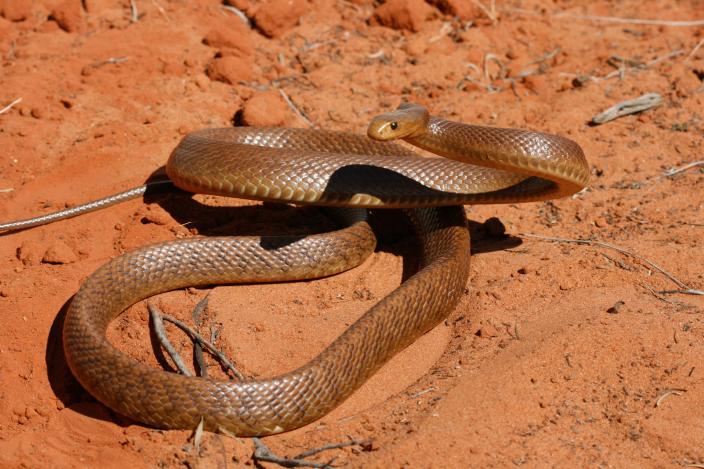Introduction
When it pertains to venomous snakes, Australia is home to several of one of the most remarkable and hazardous species worldwide. Among these, the Tiger Snake stands apart not only for its powerful poison yet likewise for its appealing behavior. Comprehending the habits of poisonous serpents like the Tiger Snake is essential for both wildlife fanatics and those living in areas where these serpents are present. This write-up explores different elements of Tiger Serpent habits, habitat, recognition, safety measures, and first aid practices in case of a serpent bite.
Understanding the Actions of Venomous Snakes Like the Tiger Snake
The Tiger Snake, medically called Notechis scutatus, is well-known for its hostile nature when endangered. These serpents Find more info show a range of habits that can be rather various from their non-venomous equivalents.
Characteristics of Tiger Snakes
The Tiger Serpent is conveniently recognizable because of What are the most venomous snakes in Australia its distinctive bands or stripes that look like a tiger's markings. They can differ in color from yellowish-brown to dark olive or black. This pigmentation serves not just as camouflage however likewise as a warning signal to possible predators.
Adaptability to Environment
One impressive facet of their actions is their adaptability to numerous atmospheres. Discovered largely in coastal areas, marshes, and wetlands across Australia and Tasmania, they can grow in diverse environments including metropolitan locations.
Hunting Techniques
Tiger Snakes are ambush predators primarily feeding upon fish, frogs, and little mammals. They have keen sight and an intense sense of smell which assists them in finding target effectively.

Venom Composition
Their poison contains neurotoxins that affect the nerve system, resulting in paralysis or death in smaller animals. For humans, immediate clinical attention is essential after a tiger snake bite as a result of its possibly dangerous effects.
Natural Habitat of Tiger Snakes
Preferred Locations
Understanding where these snakes live sheds light on their behavior patterns. The tiger snake habitat consists of:
- Coastal regions Swamps Grasslands Urban locations with abundant water sources
Seasonal Movements
During warmer months, Tiger Snakes are much more active as they indulge in sunshine or hunt for food. In contrast, cooler months see them pulling away right into hibernation sites.
Are Tiger Snakes Venomous?
Yes! The inquiry "are tiger snakes venomous?" commonly arises among those not familiar with this types. Their poison is thought about among the most dangerous amongst all snake types worldwide.
Symptoms of a Tiger Snake Bite
If bitten by a tiger snake, signs might include:
- Localized pain Swelling at the bite site Nausea and vomiting Sweating and confusion
Immediate medical assistance is crucial as neglected attacks can lead to serious health and wellness complications and even death.
First Help for Serpent Bites: Quick Reaction Guide
Knowing just how to carry out first aid for a snake bite can conserve someone's life. Here's what you need to do:
Step 1: Remain Calm
Keeping tranquility aids decrease heart rate which minimizes venom spread.
Step 2: Paralyze the Affected Area
Keep the influenced limb still and below heart degree if possible.
Step 3: Call Emergency Situation Services
Always look for specialist medical assistance promptly after a snake bite.
First Help for Snake Bite Set Essentials
A well-appointed snake bite first aid kit need to include:
- A compression bandage Antiseptic wipes A pair of scissors An ice bag
Safety Preventative measures: Preventing Snake Bites in Australia
Awareness Programs
Educating areas regarding local serpent varieties and their behaviors can substantially lower experiences leading to bites.
Avoiding Dangerous Areas
Staying away from lengthy turf during warmer months decreases contact with snakes that may be relaxing or hunting.
Common Mistaken beliefs About Tiger Snakes
Many people think misconceptions about the habits of tiger snakes lead to unneeded fear. Below are some information:

Myth 1: All Tigers Are Aggressive
Not all tiger serpents will display aggression if Look at this website left undisturbed; numerous like taking off instead of confrontation.
Myth 2: They Chase Humans
Tiger serpents do not proactively chase after people; they might strike when they really feel intimidated yet will usually pull away if provided space.
Conservation Efforts Related to Poisonous Snakes
Conservation efforts concentrate on informing communities regarding securing local wild animals while minimizing human-snake interactions.

Importance of Ecosystems
Understanding that venomous snakes play a necessary role in preserving eco-friendly balance helps foster recognition as opposed to fear in the direction of them.
FAQs About Tiger Snakes
What needs to I do if I encounter a tiger snake?- Maintain distance and slowly back away without unexpected movements.
- While bites aren't extremely usual due to awareness initiatives, they still happen yearly within Australia.
- Baby tiger serpents can provide complete dosages of poison despite being smaller; therefore care is recommended around them.
- They mainly consume frogs, fish, small creatures like rats, and various other reptiles.
- It's unlawful in the majority of jurisdictions without appropriate licensing as a result of security problems regarding their venom.
- Wear durable boots and stay on marked trails; appearance prior to positioning hands or feet into hidden spaces like rocks or logs.
Conclusion
Understanding the actions of poisonous snakes like the Tiger Snake not only boosts our knowledge yet also promotes safety understanding amongst those living near their habitats. From acknowledging their qualities, comprehending emergency treatment methods complying with a bite, with engaging conservation efforts-- every aspect plays an important role in cultivating conjunction with these remarkable reptiles while valuing their area within our ecosystem.
As we strengthen our understanding with education and learning and experience, we contribute favorably toward making sure both human safety and security and wild animals preservation-- profiting all parties involved!